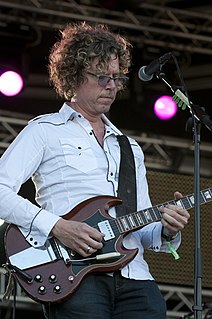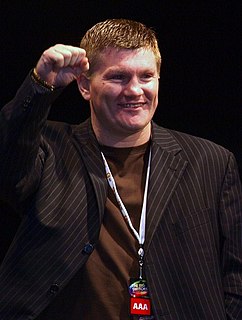A Quote by Jonathan Dee
I worry that's what people are going to think about me if they kind of go backwards. But if that didn't happen to you, I'll feel better.
Related Quotes
I'm trying to honestly do what I want to do, in the most honest way, and not worry about the consequences, because what's the worst thing that can happen? People don't like it, I go home. I'm not going to get hung by my thumbs. And as long as I don't read the reviews or care about what people say on a website or worry about those kind of things, then I'll probably be very happy.
I used to worry about money and career and what was going to happen. How was I gonna succeed or fail in the world? And I thought about it enough that I'm no longer worried about it. I'm not... I don't worry about what's gonna happen in my life. I don't worry about telling me about dying, my own mortality. That's a given.
I worry a lot about what people think. I worry people think I'm not helping them enough, that they don't like my music, that I'm playing a song too fast or talking too fast. I worry my wife isn't happy with our relationship... I'm afraid somebody's going to take my career away from me. That it's going to go away, or I'm going to get fired.
One of the things that really impressed me about Anna Karenina when I first read it was how Tolstoy sets you up to expect certain things to happen - and they don't. Everything is set up for you to think Anna is going to die in childbirth. She dreams it's going to happen, the doctor, Vronsky and Karenin think it's going to happen, and it's what should happen to an adulteress by the rules of a nineteenth-century novel. But then it doesn't happen. It's so fascinating to be left in that space, in a kind of free fall, where you have no idea what's going to happen.
I think about the structure, sure. I think about what's going to happen, and how it's going to happen, and the pace. But I think if I stop to think about it in an abstract sense, I feel very daunted. I just try to enter into the story and feel my way through it. It's a very murky, intuitive way of going about it.
I remember getting advice like, "Oh, do what interests you. Don't worry about tomorrow, live for today," kind of thing. And to a degree, you've got to do that, you've got to follow your passions. You've got to follow your dreams, but you also have to have a plan. You can't just say I'm going to do what interests me today and I'm not going to worry about tomorrow, that doesn't work. And anyone who's tried that I think quickly finds that out. Think about what turns you on, what do you dream about? But along with that, make a plan and work hard to make it happen.
I think people feel very comfortable reviewing the idea of me, as opposed to what I've actually written. Most of the time, when people write about one of my books, they're really just writing about what they think I may or may not represent, as sort of this abstract entity. Is that unfair? Not really. If I put myself in this position where I'm going to kind of weave elements of memoir into almost everything, well, I suppose that's going to happen.
And it's kind of my own fault too, in the sense that I've used my own life as a literary device so much. I think people feel very comfortable reviewing the idea of me, as opposed to what I've actually written. I find that most of the time, when people write about one of my books, they're really just writing about what they think I may or may not represent, as sort of this abstract entity. Is that unfair? Not really. If I put myself in this position where I'm going to kind of weave elements of memoir into almost everything, well, I suppose that's going to happen.
People say to me, Hey, Bill, the war made us feel better about ourselves. Really? What kind of people are these with such low self-esteem that they need a war to feel better about themselves? May I suggest, instead of a war to feel better about yourself, perhaps... sit-ups? Maybe a fruit cup? Eight glasses of water a day?
I think, initially, working on your own is really great because it allows you to just be really free and not worry about how things are perceived or if people are going to think you're an idiot. And once that becomes ingrained, at least for me, I think I'll feel really comfortable to work with other people and still feel that same freedom.






































